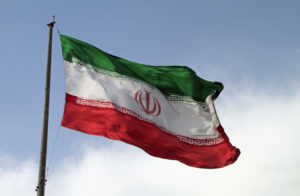The Biden Administration Must Fix Flawed Iran Nuclear Deal

iStock.com/ Credit:Rainer Puster
Israel is widely suspected of orchestrating the recent assassination of Mohsen Fakhrizadeh, an Iranian brigadier general and scientist believed to have founded the regime’s covert nuclear weapons program.
If true, the incident once again demonstrates Israel’s willingness to use force to stymie Iran’s nuclear capabilities, which it views as a critical threat.
More immediately, it puts a looming choice for the incoming Biden administration into sharp relief: fix the fatally flawed 2015 nuclear agreement, or re-enter it and risk sparking a major escalation between America’s allies and adversaries.
JCPOA Flaws
As critics have long noted, the Joint Comprehensive Plan of Action (JCPOA) fails to restrict Iran’s development of nuclear-capable ballistic and cruise missiles, as well as its destabilizing activities in the Middle East.
Most egregiously, it allows key restrictions on Iran’s nuclear program to expire, ultimately reducing the regime’s breakout time to a nuclear weapon to near-zero.
It also granted Iran upfront access to tens of billions of dollars in previously frozen assets, provided relief from crushing sanctions, and led to the lifting of an international arms embargo on Tehran.
These grievous shortcomings helped generate significant opposition to the deal among the Israeli and American publics and eventually pushed the Trump administration to leave it in 2018.
They now drive concerns over President-elect Joe Biden’s plan to rejoin the JCPOA “as a starting point for follow-on negotiations” with Iran, rather than to renegotiate the deal from the outset. This strategy risks relinquishing the leverage built by the Trump administration’s “maximum pressure” campaign, which will be critical to strengthening the agreement.
Dangers of Failing to Fix JCPOA
It is difficult to overstate the dangers of failing to fix the JCPOA.
Israeli leaders have clearly warned that they won’t allow their people to live in the shadow of an Iranian nuclear bomb. Iran has repeatedly and explicitly promised to annihilate the Jewish state, and supports violently anti-Western Islamist groups with the same ideology.
Israel cannot afford to allow such a nefarious regime to obtain nuclear weapons – and has the power and will to prevent it.
Unfortunately, the JCPOA does not permanently cut off Iran’s pathway to a bomb – and one need look no further than North Korea to understand the irreversible consequences of pursuing an overly soft negotiating approach and inadequate nonproliferation policies.
Concerningly, Iran’s program has progressed since the JCPOA was implemented. For instance, the regime today is operating advanced centrifuges that were restricted by the deal’s temporary limits, allowing it to speed up uranium enrichment and shorten its distance to the bomb.
Risks of Rejoining JPCOA
Should the US simply rejoin the flawed agreement and allow Iran to emerge as an empowered, legitimized nuclear threshold state, Israel may do whatever is needed – militarily or otherwise – to deny Iran the option of acquiring nuclear weapons.
Of course, the risks associated with Israeli military action are manifold. Iran sponsors terrorist groups across the Middle East not only to disrupt the existing power balance and advance its imperialistic ambitions, but also to ensure that in the event of a war, it can mobilize fighters on its behalf.
At the tip of this Iranian spear is Lebanese Hezbollah, which has some 150,000 rockets and missiles pointed at Israel. Tehran also backs Hamas and Palestinian Islamic Jihad in Gaza, the dictator Bashar al-Assad and allied forces in Syria, and Shiite militias in Iraq. Should war erupt, Iran could thus strike from multiple fronts.
Other powers threatened by Tehran – namely the Gulf Arab monarchies, two of which recently normalized relations with Jerusalem – may also be drawn into the conflict. In such a scenario, American allies would face a coalition of emboldened, fiercely anti-Western forces led by Iran’s revolutionary regime – with an agreement negotiated by Washington and Europe serving as a major catalyst for the unfolding catastrophe.
To make matters worse, a revival of the deal also risks prompting a nuclear cascade. In 2018, the crown prince of Iranian arch-rival Saudi Arabia threatened to pursue a nuclear weapon should the Islamic Republic develop the same.
Preventing a Nuclear-Armed Iran
Everything must be done to avoid these alarming possibilities.
During his campaign, President-elect Biden rightly committed “to prevent Iran from acquiring a nuclear weapon” and to working “with our allies … to strengthen and extend” the nuclear deal. It is crucial that this pledge extends not only to America’s European allies, but to its friends in the Middle East – those closest to Tehran’s crosshairs.
Most critically, Israel should not be sidelined during any future negotiations but given room to participate – however informally – and to voice its concerns and red lines. Other regional stakeholders, particularly the Gulf Arab states, should likewise be consulted.
Approaching potential negotiations with the help of America’s regional partners, rather than over their objections, will increase the likelihood of fixing the JCPOA’s fatal shortcomings, averting a massive regional escalation, and fulfilling the essential purpose of diplomacy: preventing a nuclear-armed Iran.
IDF MG (ret.) Yaacov Ayish is a former Israeli Defense Attaché to the United States and Canada, and former head of the IDF General Staff Operations Branch. He is Senior Vice President for Israeli Affairs at the Jewish Institute for National Security of America (JINSA).
Originally published in The Defense Post